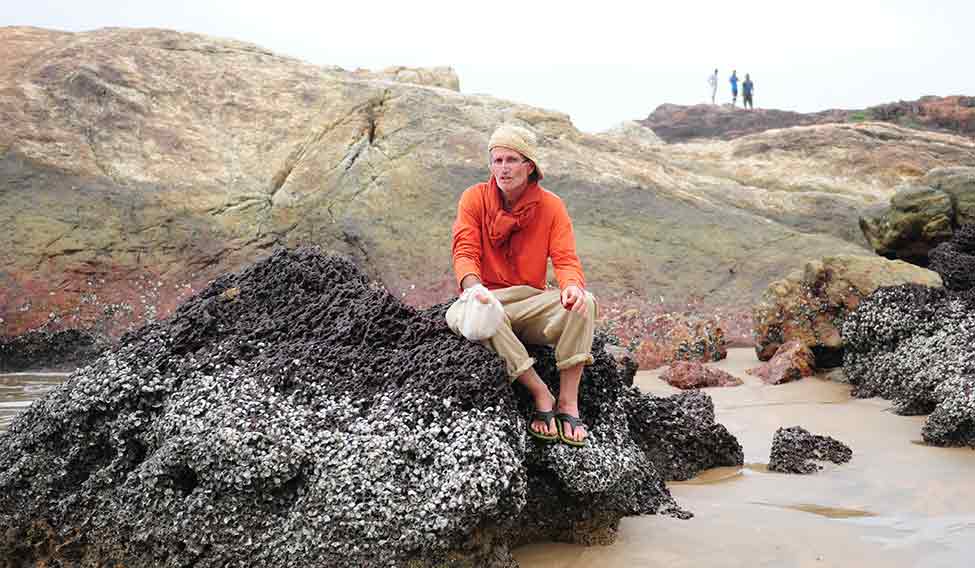In 1965, Abhay Charan De, later known by the honorific A.C. Bhaktivedanta Swami Prabhupada, boarded a cargo ship, the Jaladhuta, to New York to spread the teachings of Lord Krishna to the English-speaking world. He began his mission by chanting kirtans at the Tompkins Square Park in New York. New Yorkers had never seen anything like it before. They were fascinated and many of them joined in, chanting and dancing on the streets, heralding the onset of the Hare Krishna movement. They would later constitute the section of humanity we now call hippies.
Soon came what is now known as the summer of love, an enthralling period in history when hundreds of hippies congregated at the Haight-Ashbury neighbourhood of San Francisco, turning the city into a haven of politics, music and drugs. Perhaps it was divine arrangement that Swami Prabhupada went there at the same time. He participated in some of the rock concerts with musicians like Moby Grape and the Grateful Dead. That summer changed the tenor of the world because till then, life was all about materialism. The hippies began questioning everything that they had been conditioned to believe.
Among the revellers was an Australian called Michael who was profoundly affected by the teachings of Swami Prabhupada. Michael, who changed his name to Madhu Krisna Das after his initiation into the Hare Krishna movement in 1984 at the age of 37, says that the spiritual leader attacked the impersonalism and voidism propagated by bogus philosophers and scientists and changed so much about the western world.
“He introduced vegetarianism and kirtans to the western world,” he tells me when I meet him in Gokarna, a coastal temple town in Karnataka, which could perhaps be called one of the last frontiers of the hippie culture in India. “He influenced everything in the west from the medical system to the music scene.”
He says he was one of the original ones to try psychedelic drugs and mushrooms in California during the summer of love. “It felt so wonderful that when I went back to Australia, I distributed a few substances to my friends there. Mushrooms used to grow wildly where we live. When we discovered them, that was an altogether different experience.”
The spirit of the summer of love was taken to other countries by the hippies and thus the hippie trail was born, starting at Istanbul and branching off to Turkey, Iran, Afghanistan and India. In every significant stop-over along the way, there were hotels and restaurants specifically to cater to the long-haired, pot-smoking hippies. Songs like Give Peace a Chance by John Lennon, My Sweet Lord by George Harrison and Hare Krishna by The Fugs immortalised the movement in pop culture. The Bollywood movie Hare Rama Hare Krishna, which features the famous Hindi song Dum Maro Dum sung by Asha Bhosle, outlined the lifestyle of the hippies. In India, Goa soon became the predominant hippie centre. In Anjuna, hippies began renting houses many years before hotels began to be built in the 1980s to accommodate the tourists. The Anjuna flea market brimmed with hippies who began bartering exotic items, prompting a surge in the local economy.
He first came to India in the early 1970s and, since then, has come many times for the spiritual atmosphere. As soon as he took up chanting, he gave up illicit sex, gambling and drugs. He would exist on a dollar a day, spending 40 cents on rent and the rest on food. “There is a potency here which you can’t find anywhere else in the world,” he says. “When I first came, the hippie culture was raging here. The hippies knew how to find all the little nectar pockets along the coast. We had the perfect choice of everything we liked. A whole bunch of us would sit and chant on the beach. We could go anywhere and feel free being there. There were no rules or regulations.”
But, as Bob Dylan, one of the original hippies, sang: The Times They Are a-Changin’. Times changed. The Islamic revolution in Iran and the Russian invasion of Afghanistan ended the hippie trail in the late 1970s. Lebanon collapsed into civil war and the unrest in Kashmir made it less inviting. The age of Facebook, selfies, western consumerism and package tours dawned. Lennon’s dream of a brotherhood of man… all the people living life in peace… living for today increasingly began looking like utopia.






